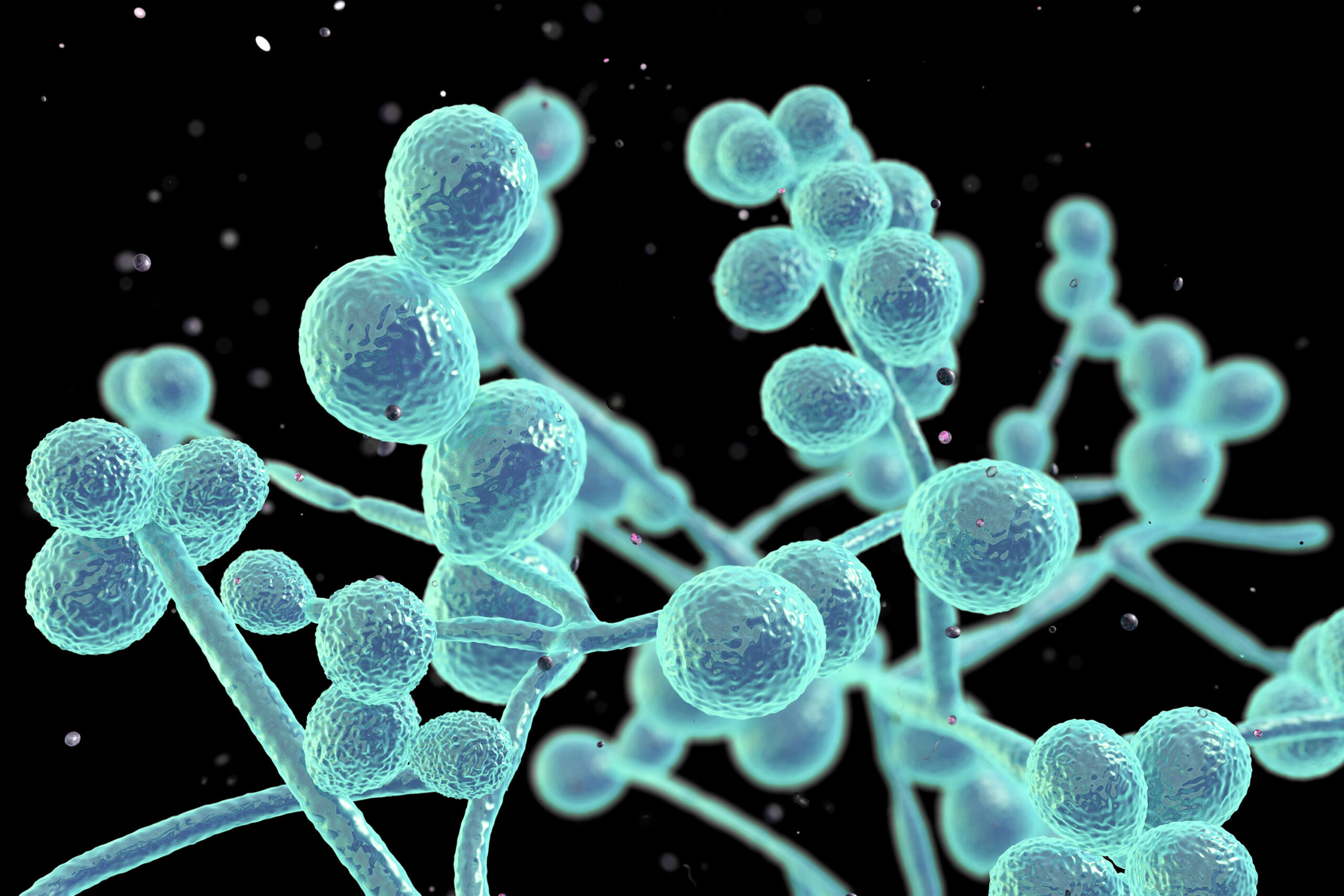A recent study published in the Canadian Journal of Microbiology demonstrates that the cannabis compound cannabidiol (CBD) may effectively inhibit the growth of Candida albicans, a yeast commonly associated with infections such as oral candidiasis.
 Researchers treated C. albicans with varying concentrations of CBD, ranging from 0 to 20 µg/mL, and observed a significant reduction in yeast growth.
Researchers treated C. albicans with varying concentrations of CBD, ranging from 0 to 20 µg/mL, and observed a significant reduction in yeast growth.
After one exposure to 20 µg/mL of CBD, the yeast cell count decreased from 5.1 × 10⁶ cell/mL in the control group to 1.8 × 10⁶ cell/mL. A second exposure further reduced the cell count to 1.1 × 10⁶ cell/mL. The study also noted a decrease in the yeast’s ability to transition from yeast to hyphae, a key factor in infection development, dropping from 20% in the control group to just 2% with CBD treatment.
In addition to inhibiting growth, CBD significantly reduced biofilm formation, which is critical for the persistence of infections. At concentrations of 10 and 20 µg/mL, CBD promoted cell death through apoptotic and necrotic pathways.
These findings suggest that CBD could be a promising agent in controlling C. albicans infections, including oral candidiasis.
Below is the study’s full abstract:
This study aimed to evaluate the antifungal activities of cannabidiol (CBD) against C. albicans. Yeast cells were treated once or twice with different concentrations (from 0 to 20 mg/ml) of CBD, showing a significant (p < 0.05) decreased the growth of C. albicans, with cell concentrations ranging from 5.1 × 106 cell/mL in the control to 1.8 × 106 cell/mL after one exposure to 20 µg/mL CBD. This growth reduction was greater after two exposures to CBD. After two exposures to 20 µg/mL CBD, the cell concentration was only 1.1 × 106 cell/mL. Such a growth decrease in C. albicans was confirmed by a reduced number of CFUs and a lower MTT value compared to the control. The growth inhibition was supported by a significant (p < 0.001) decrease in the yeast-to-hyphae transition, ranging from 20 ± 0.2% in the control to 2 ± 0.5% after exposure to 20 µg/mL CBD. Biofilm formation was also significantly reduced following CBD exposure. CBD at 10 and 20 µg/mL promoted the death of C. albicans through an apoptosis/necrotic pathway. Altogether, our results suggest the possible use of CBD, a cannabis derivative, to control C. albicans infection, including oral candidiasis.






